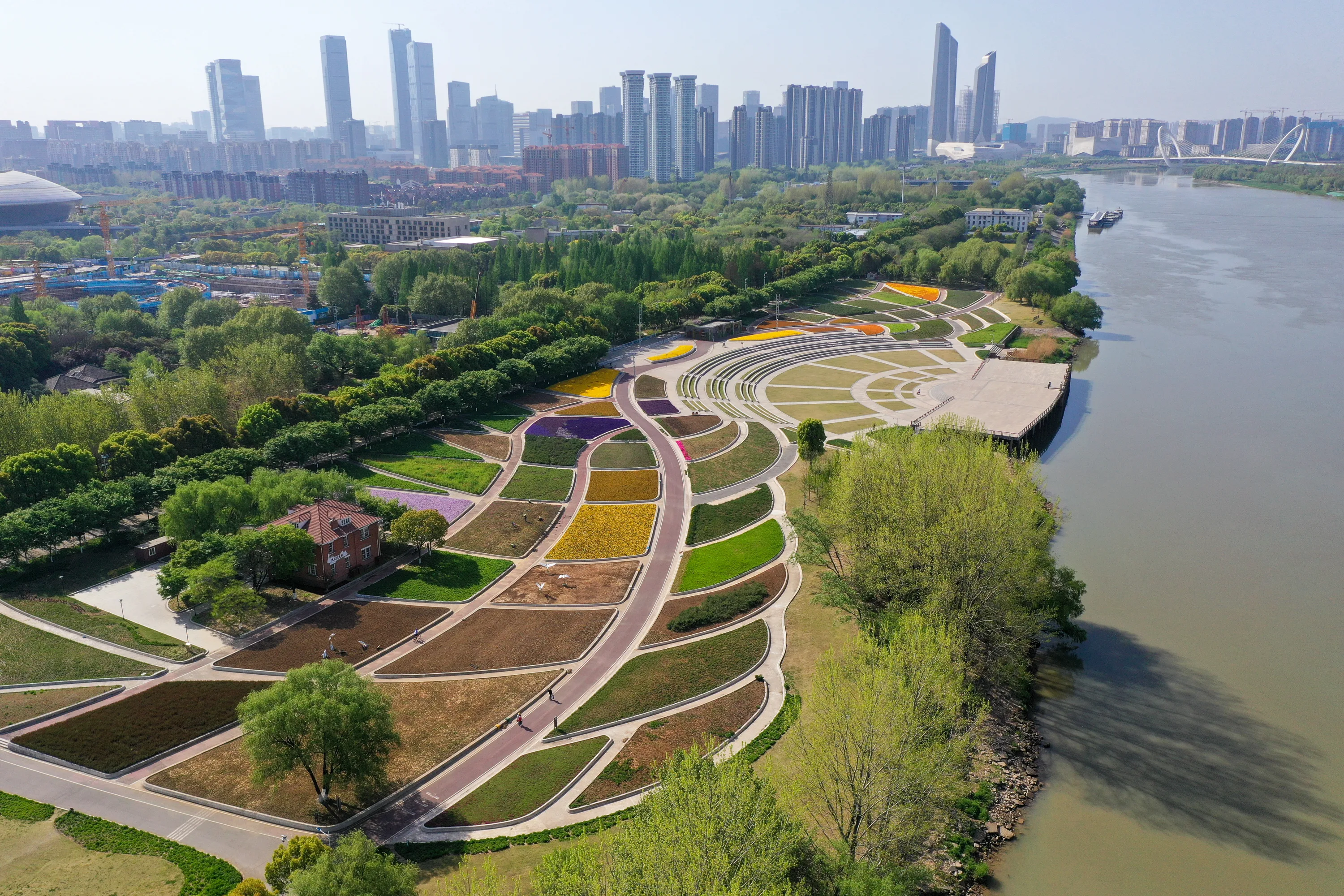When the Yangtze Meets the Hudson: Civilizations Prosper Harmoniously in Exchange
The Hudson River in the United States flows southward into the Atlantic Ocean, while China's Yangtze River courses eastward into the Pacific Ocean. Despite their geographical separation, the flourishing Sino-U.S. trade and cultural exchanges have tightly connected these two rivers. On April 19, Nanjing, a significant city on the Yangtze River, brought the essence of Chinese culture to New York, a key city on the Hudson River during the United Nations Chinese Language Day event titled "A Journey of Creation, Connection and Harmony" at the UN headquarters in New York. This year marks the 15th UN Chinese Language Day, and the theme's emphasis on "harmony" and "connection" conveys the essence of peace, amity, cooperation, and alignment.
To further promote the concepts of "harmony" and "connection", Nanjing, in collaboration with UNESCO, will highlight the 2024 Nanjing Dialogue on Yangtze River Culture at the 10th World Water Forum in Bali, Indonesia from May 20 to May 25. This special dialogue session will engage in conversations about urban civilization along rivers with countries such as Indonesia, Malaysia, and Brunei. Experts and youth representatives from around the world in the fields of water conservancy and water culture research will discuss topics including rivers and cultural identity, the evolution of rivers, cities and civilizations, development of historical and cultural spaces within river basins, and the contemporary significance of traditional wisdom found in heritage and intangible cultural heritage.
Cities built upon great rivers often symbolize opportunity and inclusiveness. New York, nicknamed the "Big Apple", has several origin stories all pointing to a place of greater opportunities and an inclusive social environment. Nanjing is also known as Jinling, which literally means a golden mound, similarly signifying wealth. The citizens of Nanjing are affectionately called "Big Radish", reflecting their warm and easy-going nature, welcoming outsiders with open arms. Both the Hudson River and the Yangtze River share the common trait of inclusiveness. In an era before the aviation industry developed, immigrants from around the world poured into New York via the Hudson River, while immigrants from across China converged on Nanjing via the Yangtze River. By the way, both cities have served as capitals of their respective countries.
Like New York, Nanjing is also a cultural city nourished by great rivers. As China's first "UNESCO Creative City of Literature," Nanjing has left behind a legacy of splendid works by numerous literati and poets. In contemporary times, it continues to embody its cultural heritage, offering global readers an imaginative space to encounter the Yangtze River and Nanjing through its river literature. Stephen Owen, a renowned sinologist and professor at Harvard University Department of East Asian Languages and Civilizations, said, "Our interest lies more in the emotional and poetic imagery that constitutes this city than the actual Jinling or its rich literary history."
Erik Solheim, former Under Secretary General of the United Nations, indicates Zhenghe at the Dialogue as a very strong symbol of dedicated peaceful internationalism. Zheng was a mystery from the Yongle emperor, the great sailor started in Nanjing traveled down the Yangtze River into the oceans went to Singapore to Sriranka to Africa, then everywhere but nowhere in war, everywhere in peace to try to get more understanding, more knowledge and bring back artifacts to China, from all these peaceful tips let's make Zhenghe the symbol of the peaceful way we need to interact in the 21st century.
In January of this year, Like a Flowing River Season 3, a TV drama, garnered significant attention in China. Not only was the series filmed in Nanjing, but it also drew creative inspiration from real-life examples of Nanjing enterprises achieving tremendous success through international cooperation in the context of the reform and opening-up. This reflects China's positive and open attitude towards cooperation and mutual learning among civilizations. The proverb, "Man struggles upwards; water flows downwards," resonates in both China and the U.S.
Despite the geographical distances, promoting human exchanges can bring civilizations closer together.



No comments:
Got Something to Say? Thoughts? Additional Information?